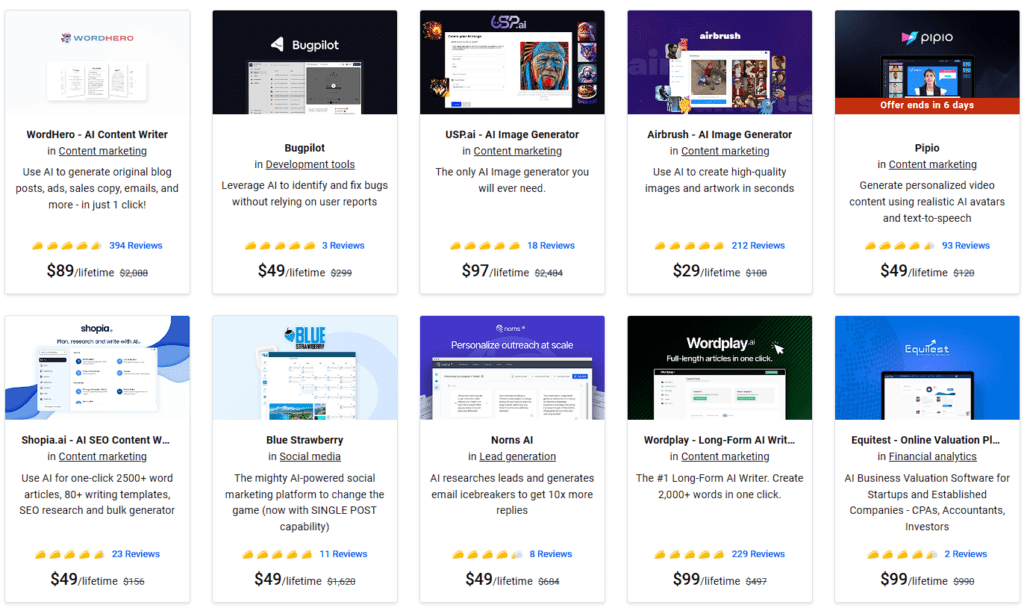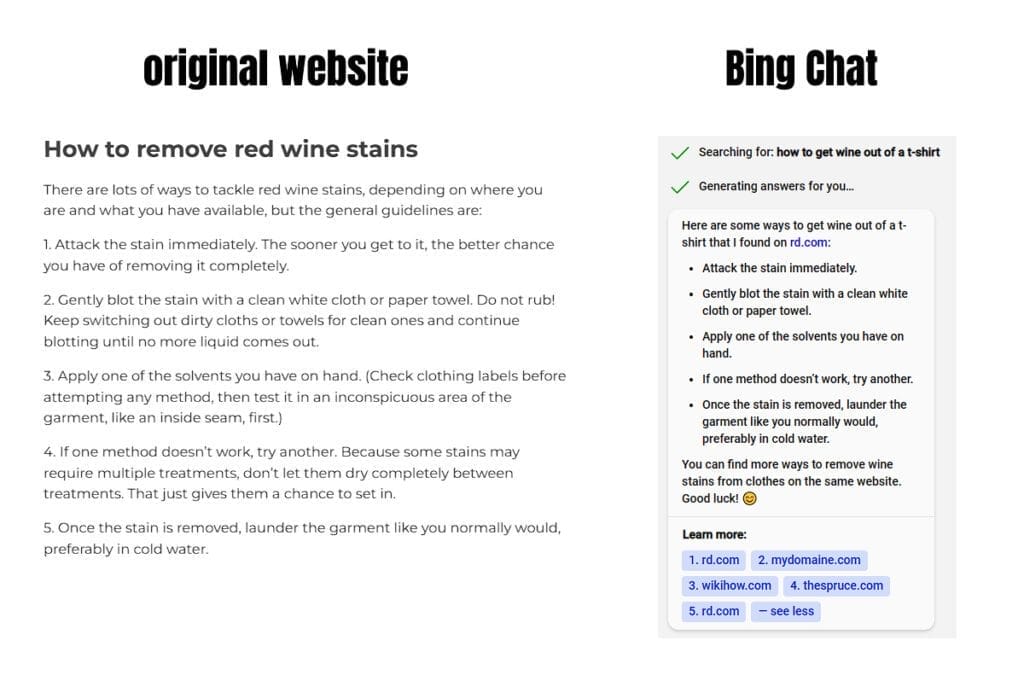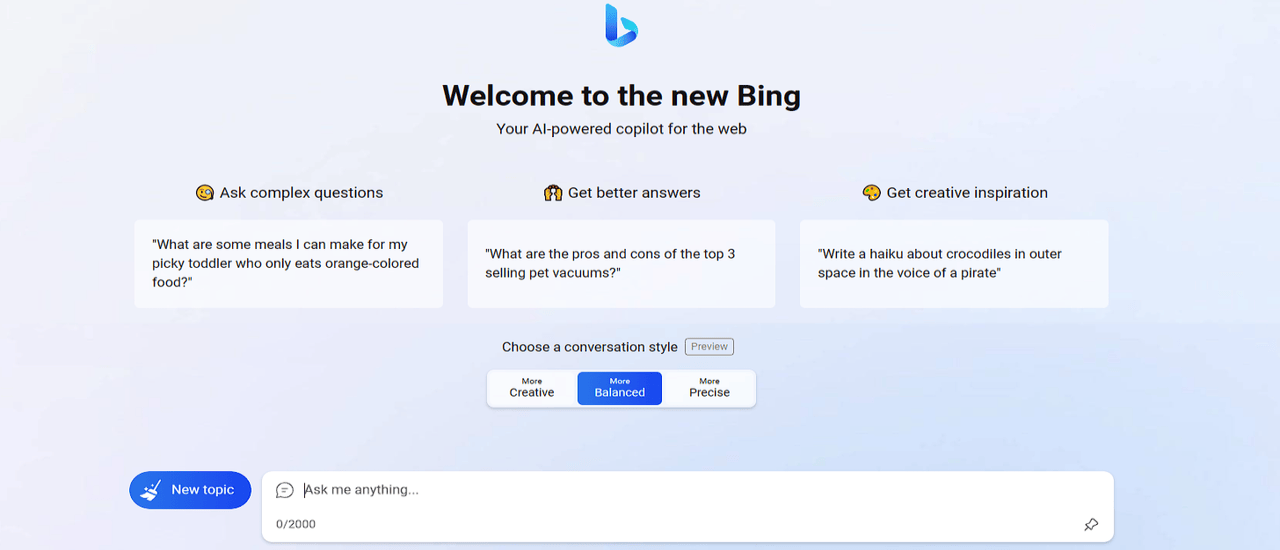In order to understand why modern articles contain so much irrelevant text – we need to take a quick look at something called SEO. Anyone that has written an article or blog post has had to learn to understand the concept of SEO. It stands for search engine optimization and is the key ingredient to getting your site ranking well on search engines like Google and bigger. While bigger websites, with larger followings, have a little more leeway with the amount of SEO they need to apply to each article, it still plays a prominent role.
Here are a few things that writers need to do in order to rank their articles in search engines:
- Ensuring content isn’t too short
- Adding relevant keywords to articles
- Linking to other articles on their website
- Linking to articles on other websites
These necessities have caused articles to become less reader-focused, and more SEO-focused. Every author is vying for a top 10 spot on Google’s first page, at the expense of quality and their readers.
This is not true of every article and writer, but if you’re creating content for online publishing – you will certainly know about SEO and have some additions that you’ll inevitably need to make to secure a spot in search engines. These could be lengthening your article by a few hundred words or adding more keywords into the mix.
Linking out to your other articles is a great way to keep your readers on your site. Many times, the linked content is relevant and interesting, but when your reader is simply looking for specific instructions – this type of content is not ideal.
The Rise of AI
Before we can see how AI will help reduce irrelevant text, we need to take a look at how it works.
GPT-3 was a huge breakthrough for AI and content creation. It is essentially a machine learning model that uses deep learning to generate human-like text. GPT-3 has been used for everything from writing articles to creating HTML websites. There are many amazing AI tools available online that use the GPT-3 API and train it to complete different tasks.

It was improved upon with the release of GPT-3.5 which is used in the popular ChatGPT app. With ChatGPT, things moved into high gear and removed the need to train individual tools for each task. ChatGPT is specifically designed to work conversationally, whereas GPT-3 is a more general-purpose model that can be used for a range of language-related tasks. This means that with ChatGPT, you can simply ask it for the content type you’d like – as you would ask a person, and have it work its magic.
And from ChatGPT, GPT-4 was trained and released. GPT-4 learned from the mistakes of ChatGPT to create an AI model that is better in every way. It’s more reliable, creative and able to handle more nuanced instructions.
GPT-4 is already being used in some fascinating ways such as in Duolingo. This popular language learning tool will now be able to better explain to you why your answer is incorrect. You can also prompt the app for additional information until you clearly understand where your error was. They’ve even added a roleplay feature that lets you have a conversation with the AI as you would a real person. The initial conversation starter will be scripted but the entire interaction afterward will be created on the fly by the AI, meaning that every chat you have will be unique and interesting.
GPT-4 and Bing
Microsoft has made a very smart move by adding GPT-4 to their search engine, Bing. Over the years, Bing has not been able to reach the same number of users as Google – which was first to market. Regardless of the improvements made to the search engine over the years, it’s nigh impossible to stand head-to-head against the giant that is Google.
However, their latest implementation may have a significant impact on both Google, and readers in general. We have become accustomed to a certain way of searching for information due to repitition. You type in your question, review the list of articles provided, and choose one that you think will best answer your question. This type of searching has become ingrained in us, and it was difficult (at first) to even consider an alternative to it. However, once you’ve tried searching for content using Bing’s new GPT-4 features, it’s even harder to go back.
SEO-optimization requires writers to add additional keywords to their articles, and to ensure that their content is adequately long enough. If you’ve ever tried to find a recipe online, you’ll have been made very aware of this. Every recipe is preceded by a lengthy story on how they discovered the recipe, how tasty it is, and any other information that can be squeezed in. For most, this is simply to add length and keywords to the article to help rank better in Google rather than the writer actually wanting to supply this background info. However, the only reason you found that particular recipe was because of the additions that the author added to get it onto the first page of Google.
Bing Chat’s new way to search – using GPT-4 – allows you to get the information you need without having to wade through the SEO gauntlet first. It does this in the best of ways. When you search for a recipe or advice, it will choose an article that it thinks best suits your request, and will pull only the necessary information you need. It’s not a copy and paste either. GPT-4 will shorten paragraphs that are too long, to create easy-to-follow points for whatever you’re asking about. This strips tons of frustration out of finding advice online.
For instance, I tried search for “how to get wine out of a t-shirt” in Google and chose an article at random. The information I needed was on that page, but it was preceded by tons of additional text to reach a higher word count. Of course, most websites also have a popup to collect email addresses, as well – which delays readers even further. This is standard practice with websites and articles these days, and has become the norm. I barely notice them anymore.
However, when using GPT-4 through the Edge browser – my search went rather differently. I used the same search phrase: “how to get wine out of a t-shirt”. It chose a specific article that it deemed to be best for my needs, and combed through the 1,013 words in it to find the specific information I was looking for. As you’ll see below, it only gave me the main points that I would need to save my t-shirt without any other fluff. Being able to pull information from websites this quickly and easily is a game-changer, and a HUGE timesaver.

You also don’t have to deal with popups, ads, or other inconveniences. Ads are essential for content creators to be able to make ends meet, but the sheer number of them has become bothersome.
It also adds a little Learn More box at the end that lets you jump to the top 5 searches related to your search query. This is akin to the standard way of receiving search engine results, but is a nice addition, if you feel that you need additional info.
What Does This Mean For SEO Going Forward?
Is this the end of SEO? Hardly.
You see, in order to choose the right articles to scrape information from, Bing is still going to use SEO to decide which articles make the cut. Writers will still need to add additional content to increase their word count, and add additional keywords to their text. However, the reader, for the most part, can avoid all of that when searching for specific information.
This works mostly for finding step-by-step instructions to fix a specific problem. If you’re looking for a review of a product, you’ll want the full scale of the writer’s opinion. And if you’re searching for news articles, you would more than likely prefer to get as much detail as possible, over just the headlines.
So, no, SEO isn’t going anywhere just yet, but the addition of GPT-4 in our lives, will surely be impactful.
Bing Chat is available in the Edge browser as a preinstalled extension.





